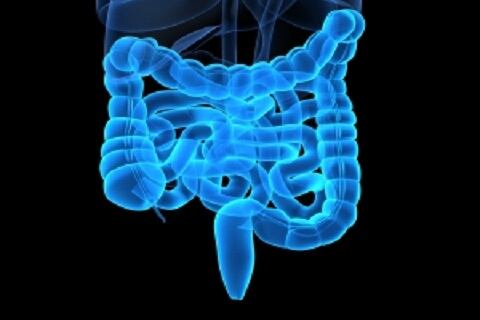The findings show that weight and fat gain is influenced by communities of microbes in the gut and their effect on the physical and metabolic traits of the host, leading to metabolic changes in the rodents that are associated with obesity in humans.
Published in today’s issue of Science, the data may represent an important step toward developing new personalized probiotic and food-based therapies for the treatment or prevention of obesity, according to the researchers responsible.
The researchers, led by Vanessa Ridaura, a graduate student at Washington University's School of Medicine, then housed the obese mice with mice that received microbes from a lean human. This is of interest because mice are coprophagic (meaning they eat feces), which leads to a sharing of microbial communities. Ridaura and her co-workers found that co-housing the obese animals with lean ones prevented increased adiposity, and adopted ‘leaner’ features.
On the other hand, lean mice appeared unaffected by their cagemates' microbes and metabolism.
Obesity’s microbial component
Ridaura is a member of the Gordon Lab, a research group led by Jeffrey Gordon, director for the Center of Genome Sciences and Systems Biology at Washington University School of Medicine.
Prof Gordon’s group has been at the forefront of research into the link between gut microflora and obesity. A breakthrough paper in 2006 published in Nature (Vol. 444, pp. 1022-1023, 1027-1031) indicated that microbial populations in the gut are different between obese and lean people, and that when the obese people lost weight their microflora reverted back to that observed in a lean person, suggesting that obesity may have a microbial component.
Dr Gordon and his group recently pushed back the scientific boundaries even further in this area. In an ‘elegant’ study, the St Louis-based scientists reported that probiotics in a yogurt did not colonize the gut microflora when studied in identical twins, but an additional study in mice revealed that ingestion of probiotic bacteria produced a change in many metabolic pathways, particularly those related to carbohydrate metabolism (Science Translational Medicine, Vol. 3, 106ra106).
‘Substantial evidence’

Commenting independently on the new study on the Gut Microbiota For Health website, Prof. Patrice Cani from the Metabolism and Nutrition research group at the Universite catholique de Louvain in Belgium said the paper provides, “substantial evidence that specific microbial communities as well as their related metabolic capacities contribute to the modulation of energy homeostasis.
“This study also emphasizes that a phenotype observed in human may be mimicked in mice and therefore used as a powerful preclinical model to screen the impact of specific nutrients or drugs on the gut microbiota and its impact on host phenotype.”
The Battle of the Microbiota
Ridaura and her co-workers also analyzed which bacterial species in particular were able to invade the obese mice. They found that specific Bacteroidetes strains were able to colonize the guts of the obese mice, settling into otherwise unoccupied niches. These bacteria then triggered changes in metabolism, among other metabolic effects, they said. However, none of the bacteria from obese mice invaded the lean mice to make them accumulate fat.
"So, why isn't there an epidemic of leanness in America?" Prof Gordon asked rhetorically, considering the stability of the lean microbiota.
Western diets
Taking their research a step further, the team formulated diets for the mice that were representative of modern American diets: One was high in fiber and low and saturated fats and the other was low in fiber and high in saturated fats.

Obese mice were again housed with lean mice, with the results showing that the ‘healthier’, high-fiber/low-fat human diet produced the same the results as before.
However, data from animals fed the unhealthy ‘Western’ diet indicated that lean mice were not able to confer protection against increased body mass in their obese cagemates, and there was no invasion of Bacteroidetes from lean to obese mouse guts.
These findings suggest that more complex interactions between diet, body mass and gut microbiota underlie human metabolic disturbances than researchers have appreciated.
"We now have a way of identifying such interactions, dependent on diet, and thinking about what features of our unhealthy diets we could transform in ways that would encourage bacteria to establish themselves in our guts, and do the jobs needed to improve our well-being," said Gordon.
"In the future, the nutritional value and the effects of food will involve significant consideration of our microbiota—and developing healthy, nutritious foods will be done from the inside-out, not just the outside-in."
Intriguing
In an accompanying editorial, Alan Walker and Julian Parkhill from the Wellcome Trust Sanger Institute in the UK, said that, “perhaps the most intriguing finding of Ridaura et al. is that microbial protection from increased adiposity is only possible against the backdrop of a suitable host diet.
“It may be that future microbiota-based therapies for an obese individual will require an alteration in diet to aid colonization by beneficial microbes. This offers a potentially synergistic approach, whereby reduced caloric intake and increased fiber consumption not only have a positive impact on energy balance but might also promote transplanted microbial communities that are associated with leanness.”
Caution

Speaking with NutraIngredients-USA, Prof Gregor Reid from the Lawson Health Research Institute at the University of Western Ontario said: “Jeff Gordon's lab always does outstanding science and invariably gets published in top journals. My one comment with this paper, is that mice data doesn't necessarily tell us much about the human situation even though microbes from humans were used.
“So, media commentaries on the paper should not be used to satisfy the apparent thirst for the public to think that there is a magic bullet that will counter obesity. The paper's finding that certain interactions in the mice were transmissible is interesting, and makes sense given how integrated hosts are with their microbiota, diet and environment.”
The report by Ridaura et al. was supported by the U.S. National Institutes of Health, the Crohn's and Colitis Foundation of America, Kraft Foods and Mondelez International.
Source: Science
Volume 341, Number 6150, doi: 10.1126/science.1241214
“Gut Microbiota from Twins Discordant for Obesity Modulate Metabolism in Mice”
Authors: V.K. Ridaura, J.J. Faith, F.E. Rey, J. Cheng, A.E. Duncan, et al.
Editorial: Science
Volume 341, Number 6150, Pages 1069-1070, doi: 10.1126/science.1243787
“Fighting Obesity with Bacteria”
Authors: A.W. Walker, J. Parkhill
